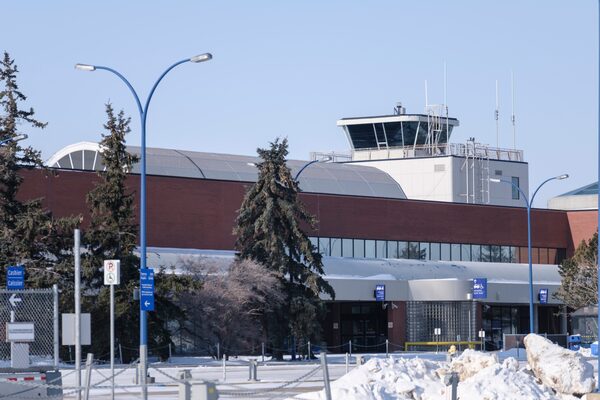
Regina International Airport is seen Feb. 18. Saskatchewan Premier Scott Moe said Thursday that the province did not have its own advisory against travel, but urged people to be cautious.Michael Bell/The Canadian Press
Provincial politicians across the country are being ordered by their parties to cancel international travel plans over the holidays amid growing concerns about the Omicron variant and in light of a recent federal advisory against non-essential trips outside the country.
The directives also appear designed to avoid the controversies that prompted resignations and demotions nearly a year ago after MPs and provincial legislators from several provinces, including then Ontario finance minister Rod Phillips and several members of Alberta Premier Jason Kenney’s caucus, spent the Christmas holidays on tropical vacations instead of heeding public-health officials’ pleas to stay home.
The federal government renewed its advisory against all international travel earlier this week. The advisory had been lifted in October.
How has Omicron changed Canada’s border and travel restrictions? The latest rules explained
The federal Liberals and New Democrats responded by ordering their caucuses to scrap any international travel, though the Conservatives said the party’s MPs were free to press ahead with travel plans.
In Ontario, the leadership of all three major parties in the Ontario Legislature has told their MPPs not to travel in light of the federal advisory. Ivana Yelich, a spokeswoman for Ontario Premier Doug Ford, said his Progressive Conservative caucus has been told that any requests for international travel will be turned down by the government whip. Requests that had already been approved have been rescinded.
Mr. Phillips’s resignation came last December after he confirmed that he and his wife took a holiday to the luxury Caribbean island of St. Barts. He returned to Canada shortly after and resigned as Mr. Ford expressed his disappointment. His exile was short-lived, however, and he was invited back into cabinet in June as the Minister of Long-Term Care.
Ontario’s Opposition NDP also told caucus members to postpone any international travel. One NDP MPP, Percy Hatfield of Windsor-Tecumseh – in southwestern Ontario and on the U.S. border – was spending time with family in the U.S. before the order was issued, said Erin Morrison, a spokesperson for Leader Andrea Horwath. Mr. Hatfield will follow public-health advice on how and when to return, she said.
Ontario’s Liberal Party has also told its seven sitting MPPs and all its candidates running in the June provincial election that they must not travel internationally over the holidays.
In Alberta, the governing United Conservative Party issued a directive to caucus members last week telling them international travel was fine given that there were no travel advisories or restrictions in place and Mr. Kenney criticized the idea of a travel advisory earlier this week as ineffective and disruptive.
However, the party confirmed Friday that the UCP whip told its MLAs to cancel any plans they have because of the new travel advisory.
“I understand that this directive may impact family members and holiday plans, but we must show leadership as we learn more about the Omicron variant,” said a memo from government whip Whitney Issik.
In early January, Mr. Kenney’s municipal affairs minister, Tracy Allard, resigned after reports that she took a trip to Hawaii, and five other caucus members received demotions from parliamentary roles for their own trips. Mr. Kenney’s chief of staff also resigned after spending the holidays in Britain.
The Premier initially refused to discipline Ms. Allard because there were no prohibitions on leaving the country, and he argued that barring travel would hurt airlines such as Calgary-based WestJet.
Both of British Columbia’s major parties said their MLAs have been told to stay in the country. Edward May, spokesman for the governing NDP caucus, said the party’s whip directed MLAs to follow the federal travel advisory. Andrew Reeve, spokesman for the BC Liberals, said the party’s caucus has been told the same.
Saskatchewan Premier Scott Moe said on Thursday that he had no plans to travel abroad, but had not given any specific direction to members of his government. He said the province did not have its own advisory against travel, but urged people to be cautious. The province’s Opposition NDP ordered caucus members and staff to stay home, said party spokesman Brock Bowman.
In Manitoba, Premier Heather Stefanson’s office directed Progressive Conservative MLAs to respect the federal travel advisory and stay in the country. The province’s Opposition New Democrats did not respond to The Globe’s inquiries.
Sign up for the Coronavirus Update newsletter to read the day’s essential coronavirus news, features and explainers written by Globe reporters and editors.
We have a weekly Western Canada newsletter written by our B.C. and Alberta bureau chiefs, providing a comprehensive package of the news you need to know about the region and its place in the issues facing Canada. Sign up today.
 James Keller
James Keller Jeff Gray
Jeff Gray